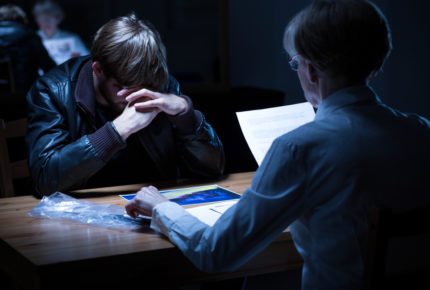

Conspiracy offences account for around 3,500 arrests in England and Wales every year. If you find yourself facing such charges, it’s natural to feel anxious, but obtaining legal support from a solicitor as soon as possible can significantly improve your situation. In this article, we will discuss practical steps you can take if you’re arrested or charged with conspiracy offences and why it is essential to have expert legal guidance throughout the process. We will address common questions that arise in these situations, such as whether you truly need a solicitor for conspiracy charges, what possible defences could be available to you, and the likelihood of being granted bail. Additionally, we’ll provide insights into how conspiracy charges are viewed by the courts in England and Wales, helping you gain a clearer understanding of your circumstances.
Do I need a solicitor for conspiracy charges?
If you have been charged with conspiracy, it is strongly advisable to instruct an experienced criminal defence solicitor as soon as possible. Conspiracy charges can be complex and are often treated seriously by the courts, potentially leading to significant penalties, including lengthy prison sentences, fines, and long-term damage to your personal and professional reputation.
To establish conspiracy, the prosecution does not need to prove that the criminal offence itself actually occurred, only that there was an agreement between two or more people to commit the crime. Having professional legal guidance in responding to these accusations is crucial. Your solicitor will:
- Clearly explain the charges against you and the necessary elements the prosecution must prove.
- Represent your interests during police interviews, court hearings, and trial proceedings.
- Provide advice on plea options and the potential consequences of pleading guilty or proceeding to trial.
- Carefully review and challenge evidence put forward by the prosecution, looking to have weak or inadmissible evidence excluded.
- Advocate for the most favourable outcome possible in your particular case, such as charges being reduced or even dismissed, where appropriate.
Early and experienced legal advice can often significantly impact the direction and eventual result of your case.
What are possible defences for conspiracy charges?
Various defences may be available depending on the specific circumstances of your case.
One common defence is lack of knowledge or intent. To convict you of a conspiracy offence, the prosecution must prove beyond reasonable doubt that you knowingly entered into an agreement intending to carry out an unlawful act. If you were unaware of the criminal nature of the agreement, or you genuinely believed the activity was legal, this could form an effective defence.
Another possible defence is withdrawal. If you initially agreed to take part in criminal activity but later withdrew before the offence was carried out, you might have grounds for defence. Evidence proving you consciously abandoned the agreement, communicated this clearly to your co-conspirators and took active steps to prevent the offence from occurring can strengthen this defence.
Duress is another defence sometimes available in a conspiracy case. Duress occurs when you are forced or pressured, under serious threats of harm to yourself or loved ones, to engage in criminal activity. To successfully rely on duress, you must demonstrate that the threat was immediate, significant, and left no reasonable alternative action available to you.
In some cases, you may argue against the existence of the agreement itself. If the prosecution cannot clearly demonstrate that an agreement existed between you and one or more persons to commit a criminal offence, or if the evidence supporting their claim is weak or unreliable, this may provide grounds for defence.
Additionally, you may argue that you were mistakenly identified or wrongly implicated in a conspiracy. Individuals may find themselves wrongly implicated due to misunderstandings or being mistakenly associated with other people involved in illegal activity. If you can establish a strong alibi or provide compelling evidence of mistaken identity or false allegations, these factors could support your defence.
Will I get bail for conspiracy charges?
When assessing bail, the court typically considers factors such as:
- the seriousness of the alleged conspiracy offence
- your previous criminal record, if any
- any previous history of failing to comply with bail conditions
- your ties to the local community, such as family, employment, and residential status
- any risk that you might interfere with witnesses or obstruct justice, and
- how likely it is that you will attend future court hearings.
If the court believes that there is little risk of you absconding, interfering with the investigation or committing further offences, the judge or magistrates may grant you bail subject to specific conditions. Common bail conditions can include reporting regularly to a police station, surrendering your passport, observing curfews, or avoiding contact with certain people or locations relevant to your case.
Will I have to go to court if I’m arrested or charged for conspiracy charges?
If you have been charged with conspiracy, it is highly likely that you will need to attend court. Conspiracy charges are considered serious offences in English criminal law, and these cases are typically heard in the Crown Court rather than the Magistrates’ Court. The Crown Court deals with more complex and serious matters and is where your case will usually be considered by a judge and jury.
You can expect:
- A preliminary hearing to determine legal matters, case management and potential trial dates.
- The possibility of bail hearings, where the court decides whether you remain free on bail or are remanded into custody until your trial.
- Attendance at the trial itself, during which evidence will be presented by the prosecution to persuade a jury of your guilt.
- An opportunity for your defence solicitor and barrister to thoroughly examine evidence, question witnesses and present your defence case.
Will I go to jail if found guilty of conspiracy charges?
Being found guilty of conspiracy charges can sometimes result in a custodial sentence, but whether or not you go to jail actually depends upon a number of factors.
When sentencing someone convicted of conspiracy, the judge will generally consider:
- The seriousness of the underlying offence and the potential harm it could cause.
- Your role and level of involvement in the conspiracy (for example, if you were a key organiser or played a more minor or peripheral role).
- Whether the conspiracy was well-planned, sophisticated, or persistent in nature.
- Your personal circumstances, including previous convictions, your age, health, and whether you have shown genuine remorse for your involvement.
In very serious cases, particularly those involving drug crimes, organised crime, fraud, violence, or terrorism, the likelihood of a prison sentence may be higher. On the other hand, if your involvement was relatively minor, or if there are significant mitigating circumstances, the court may consider alternative sentences, such as community penalties, suspended prison sentences, fines, or rehabilitation programmes.
Will I go to jail if it’s my first offence of conspiracy charges?
Whether or not you will receive a custodial sentence depends upon several factors.
Firstly, conspiracy offences are considered serious crimes because they involve planning and agreement between multiple individuals to carry out unlawful activities. As a result, judges have sentencing guidelines they must follow, which take into account the specifics of the offence and your individual circumstances.
When deciding whether a custodial sentence should be given, the court will consider factors including:
- The seriousness and nature of the intended crime.
- Your specific role in the alleged conspiracy.
- The level of harm caused or that could potentially have been caused.
- Whether you played a leading, significant, or minor part.
- Your previous criminal record, if any.
- Any mitigating circumstances, such as early cooperation with the prosecution, admission of guilt, or genuine remorse expressed by you.
Being a first-time offender can be beneficial as it could act as significant mitigation in sentencing. Courts tend to regard first-time offenders more favourably than repeat offenders, especially if the individual demonstrates remorse and accepts responsibility for their actions.
Can I get Legal Aid for conspiracy charges?
Legal Aid is available in criminal cases, including conspiracy allegations, providing certain criteria are met. The seriousness and complexity of conspiracy charges typically allow defendants to qualify for publicly funded legal assistance, though eligibility is subject to financial means testing.
To determine whether you qualify for Legal Aid, the court or the Legal Aid Agency will assess factors such as:
- Your personal financial circumstances, including income, savings, and assets.
- The seriousness of the charges brought against you.
- Whether it would be in the interests of justice for you to have legal representation funded by the government.
Remember that an experienced criminal defence solicitor can assist you in navigating the application process for Legal Aid, explaining clearly what you’re entitled to, and providing guidance throughout each step.
Where to get more help
Criminal charges can feel overwhelming, but understanding your rights and securing expert legal representation significantly improves your chances of a positive outcome. A knowledgeable criminal defence solicitor will explain every step clearly, protect your rights, and build a strong defence tailored specifically to your circumstances. For reliable, confidential, and sensitive support with your defence, get in touch with the team at Stuart Miller Solicitors today.
OUR COMMITMENTS TO YOU:
-
Responsive
A legal expert will consult you within 24 hours of making an enquiry.
-
Empathetic
We will always treat you with trust, understanding and respect.
-
Specialised
Your case will be handled by an expert who specialises in your type of offence.
-
Proactive
We will take early action to end proceedings as soon as it is practically and legally possible to do so.
-
Engaged
You will be kept updated on your case at all times. We will provide a named contact available to answer your questions.
-
Caring
We understand this is a difficult and stressful time for you and your family. Our team will support you every step of the way.
-
Tenacious
We will never give up on your case. We fight tirelessly to get you the best possible outcome.

